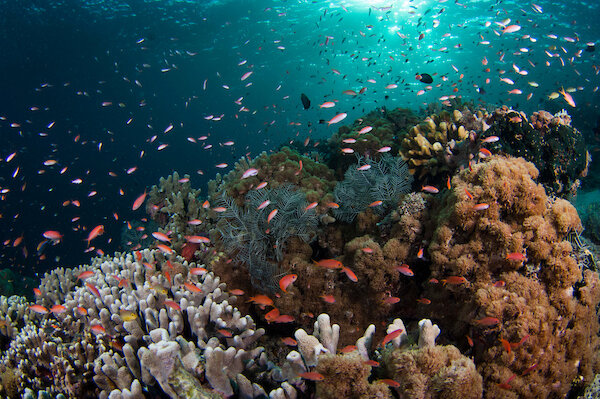
Executive Director SFB
QUICK LINKS: Our Mission - About Us - Timeline - Donate - Sponsors, Partners, & Friends - Contact Us - Newsletter
Captain Dieter K. Rudolph, U.S. Navy (retired)
Dieter Rudolph is the Director for the Earth Island Institute project “Stop Fish Bombing”. This project uses technology and community engagement in Sabah Malaysian Borneo to stop Fish bombing. This destructive practice uses explosives to kill fish for consumption or sale, indiscriminately killing animals in the blast area and devastating coral reefs. SFB uses blast detection technology and law enforcement to deter fish bombers. Community engagement is focused on the people living in and around Marine Protected Areas (MPAs) affected by blast fishing to encourage sustainable coastal fishing.
Since 2014 Dieter worked with Not for Profit organizations. First as Director of Science for Ocean Security International, based in Washington DC. After a year he assumed responsibility as President and CEO. OSI goal of protecting the oceans used a “Top Down and Bottom Up” approach to connect local communities with city and state officials to address the impact of climate change. In 2017 OSI was disestablished and a new NGO with a broader mission was established in Cartagena Colombia. “South – South Cooperation Council for Sustainable Development” (SSCC) focused on reconciliation following the end of civil conflict using education, art and culture, as well as protection of the environment, as tools for inclusiveness, for safeguarding identity and achieving sustainability. Dieter was instrumental in establishing this NGO and served as President and CEO for the first year.
From 2006 to 2014 at Science Applications International Cooperation Dieter was responsible for business development and contract management in support of Army, Navy and Department of Energy customers. He played a vital role in winning a $30.5M cost-plus-fixed fee, multiple award contract that retained all incumbent work and won two new Task Orders from SAIC competitors. As a Senior Associate for Applied Ordnance Technology (acquired by SAIC) he obtained a $3M Department of Energy Grant. He developed and demonstrated a prototype radiation sensor for detecting, identifying and locating radioisotopes to counter the “dirty bomb” terrorist threat. As a recognized expert on Russian Navy radiological and environmental issues he was selected as a member of the National Research Council Committee on Cleaning Up Radioactive Contamination: Russian Challenges and US Experience in 2007.
From 1997 to 2006 he supported the Deputy Under Secretary of Defense for Environmental Security as U.S. Program Director for the Arctic Military Environmental Cooperation Program (AMEC). This $32M international program developed and demonstrated nonproliferation technologies focused on radiological and environmental issues in Russia in cooperation with the Ministries of Defense for Norway, United Kingdom, Russia and the United States. Successful technology demonstrations included the development of a dual use spent nuclear fuel transport/storage cask, the development of a comprehensive solid radioactive waste treatment and storage facility. He was awarded the Nikolas Roerich Medal for his radiological-ecological contributions for military ecology and designated as Honorary Academician of the International Academy of Ecology, Human and Environmental Security.
During his Navy Career, Captain Rudolph served as Deputy Oceanographer of the Navy; as Director of the Naval Oceanographic Office he was responsible for a workforce of 1000 civilian oceanographers and hydrographers, an annual budget of $150M, and a fleet of 10 state of the art oceanographic ships. Under his leadership the Office received two Federal Technology Leadership Awards for oceanographic and hydrographic data management and supercomputing management. As Director of the Naval Oceanography Command Center/Joint Typhoon Warning Center Guam he was awarded the “Ancient Order of the Chamorri” by the Governor of Guam for significantly increasing typhoon readiness/responsiveness of Guam’s Civil Defense Emergency Management teams. He retired from the Navy in 1999. His awards include the Defense Superior Service Medal and two awards of the Legion of Merit.

